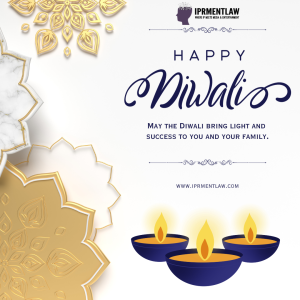Intellectual Property Rights are said to symbolize innovation, creation, and progress. Why would they not? We have been hearing this for quite some time. Because we have had it for so long, a part of us does believe that IP helps generate knowledge. It soothes our socio-legal consciousness around property rights. Doesn’t it? Given there are umpteen metaphors, rhetorics, and quotes defining knowledge as light (which I agree with to a great extent), it gives us enough reason (esp. in the Diwali season) to attach some sense of light and knowledge to IPR. So, before I see a bunch of wishes analogizing IP, knowledge, and lights in my inbox, I decided to do this quick post wishing all our readers Happy Diwali offering some (hopefully, sweet) food for thought about IP-is-light (is it?).
Before we go to the dark jungle sprinkling light (sounds paradoxical? Wait for some more lines), I want to ask: if IP is light, or IP brings light, then what is darkness or what brings darkness? Without darkness, light doesn’t happen. Certainly, it’s not public interest or the claims underlying these interests as they are the ones that are often pitted against IPR, placing us in the coteries of pro and anti-IP. I leave that to you!
If darkness Can Cause Depression, More (than required) Light Can Make Us Blind!
We have IP, and there are constant claims and efforts to get more of IP (both in numbers and scope). But too much IP light can blind us too. No? But anyway, who doesn’t need light? After all, it helps us see things. Doesn’t it? Yes. But I wonder if light is overhyped in the sense of diluting the importance of darkness. Importance of darkness, a part of us would scream to challenge this. That’s completely fine. Pause here for a minute. This scream seems to have stemmed from our social consciousness that just loves “binaries” like anything. So much so, that it makes us feel the duality inside us – the same duality that forces us to take sides, favoring one aspect while disfavoring others, or sometimes just tinkering around with our favorite sides to make sense of the other not-so-favorable sides (like IP’s balance discourse).
But this is all too abstract. No? Let’s go deeper (don’t worry we have “light” around us, at least on the phone/laptop through which you have joined me), we may see something else. Did you see it? Yes? No? No problem. I think I did see. When someone says, “light,” a part of me leaps its literal meaning and starts flowing with its figurative meaning, and drowns into the idea of it. This flow takes me to a dark jungle, a jungle of my thoughts and experiences interspersed with some blurred images of god/good and devil/bad, colors (e.g., black-vs-white), and other social phenomena that I find (or at some point, “found”) favorable in some way. The next moment, I find myself standing in the middle of everywhere. Yes, everywhere, many things/ideas get in my way to think of what light is and where it is taking me. If you also think/see so, two cheers!
Wait … I need to come (and take you?) out of this jungle before I lose you (or vice versa), my readers! But what of all this juggling through the mental jungle? Well, here’s something that this flow seems to tell: those things that I saw while journeying through the jungle of thoughts (thinking of “light”), only made sense with darkness in the background. I mean all those ideas that the word “darkness” implies, joined me in this jungle of thoughts, automatically. E.g. thinking of “light,” I met white color, but, it was with its friend “black” ( who was with some other darker versions of white ranging from off-white to yellow to orange, to red, to …). If everything is white, I just don’t see any charm in white anymore. Do you?
Consider Diwali here. Candles, lamps, Diya, firecrackers – they all hit differently at night, in the darkness! Ever tried lighting them up in the morning with ample light from the sun? No, we don’t, at least not in my village, Phalodi. We wait for the sun to set (thus, bringing us some darkness), and then bam – our decorations come to life, making sense to us and all around us.
So, what about the question, “Who doesn’t need a light.” Does your answer change? Well … mine didn’t, at least not completely. We do need light, but it is only with darkness we can appreciate it more and truly. We (or at least I) need darkness and light in equal measure or at least in a way that we can appreciate both of them in the true sense. Similarly, we (perhaps?) need IP but too much of it? I seriously doubt it and will keep questioning it until I kindle candles in the daylight.
Again, I don’t know how and what you think of the dark counterpart of the IP-light. But remember, the way darkness can bring dullness and too much of it can cause other harms (both in literal and figurative ways), too much light can make us blind and cause things that only darkness can cure. But, let’s not accept the baloney of balancing it, saying that we need a balance of light and darkness. We need different amounts of light at different times, depending upon our needs. This also means that we need a different amount of darkness at different times. The same goes for IP; how much of it we need depends upon whether we see it as a light or darkness (at least for Macaulay it was evil/tax (kinda darkness, if I may?)). Based on that, our answer (and the need for light/darkness) will vary.
On that note, Happy Diwali to all readers. Wish you all an amazing year with much-needed lights with the required doses of darkness!












